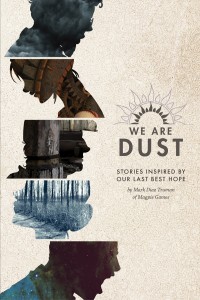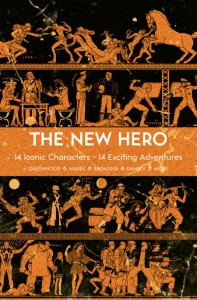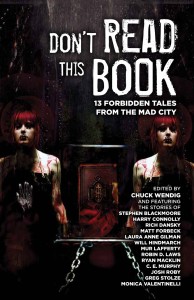Today, cats and kittens… I am going to talk about your core competency. No, this is not about your platform persay. This is about what service you are going to perform, what Art you will create, that people will spend money on.
Take a deep breath. Okay? Seriously. Here are some things to consider when you’re figuring out whatever it is you want to do underneath the umbrella of “writer.”
No amount of internet popularity will do you a damn bit of good unless you have something to back it up. Oh my stars, can we stop with the plugging the same book over and over and over again? Really, folks. If you’re reading this post, then you’re probably concerned about building a business. You absolutely cannot write the one book, throw it up on Amazon.com, and call it a day if you expect to pay your bills off of—
—what, exactly? Now, I know that some of you are very concerned about Facebook likes, Twitter followers, etc. Ten years, ten years of ecommerce and online marketing later, and I can tell you this is a trap. “Celebrity,” in terms of writers, means different things to different people — but it’s not a guarantee that you’ll find/get work or have people buy your books because people perceive you are popular. For your career, consider that popularity is determined by book sales, not necessarily by online chatter or awards. What I’m suggesting, is that you take a peek at your business from the foundation, not from the top floor which is marketing and publicity and the tactics you can take to boost your own signal.
This is where I see most new writers go wrong, because you fall into the trap of believing everything you read, because you don’t see the marketing that writer/person is doing to you. Then what happens, is you think that in order to sell books and get work, you have to start marketing right out of the gate. If you do not have a core competency, this removes time away from learning and can work against you when you have to deliver. Writing advice? Most times, this is marketing — especially if that person has novels or other works to sell. Yes, I’m a consultant as one aspect of my business, but I’m also not out there pounding the pavement for that every day. That is not what I want to be when I grow up but rather something to fall back on.
What is it that you do exactly? Short stories? Press releases? Novels? And what is it that people are buying or hiring you for? Ah, grasshopper. Here’s the conundrum, right? Because new writers don’t “get” to write a novel and make enough to earn a living right out of the gate. This can happen, it doesn’t mean it’s going to happen to you. Even then, writing novels as a core competency requires a different set of skills than short stories or press releases.
Say you want to build a career off of short stories. Okay, let’s say it takes you one week to write, revise, and polish a 3,000 word story. You still have to sell that, and that doesn’t happen overnight. Now, if you get the minimum rate, which is five cents a word, you’ll earn $150 before taxes. Let’s assume there’s a two week turnaround for rejection and you sell 40% of the stories you submit. So of those 52 stories you write in a year, you sell twenty of them. Math-wise, this now equates to a whopping $3,000 before taxes.
Of course there are variables and levers to push and pull, but the reason why I talked about the example above is because I’m trying to show you that building your core competency may not be enough to earn a living. (This is why I opt to have diverse income streams and work on multiple projects. Other writers feel pressured to write more and publish frequently for precisely this reason, to make more money.) Even if you become known as a short story writer, that doesn’t mean you’re going to be rolling in the dough. Over time, you can resell your stories depending upon what rights you own or you can open up a small press — but self-publishing isn’t a guarantee either. You need to sell a LOT of copies to even earn out that first $150, and believe me, the average self-publisher is not making that much on their short stories, not even their novels.
I recommend that your core competency should be built around skills like:
- Productivity – How many words can you write? Of those words, which are publishable on average? What’s your writing speed? Revisions speed?
- Discipline – You must write because you have to, not because you want to, and not when a magical spirit muse shows up.
- Quality Control – Revisions, research, drafts, etc. You know your own process best. Even if you self-publish, you are doing yourself a HUGE disservice if you don’t proofread and spellcheck your work.
- Flexibility – Your book gets canceled, the editor’s role changes, your payment is delayed. When plans go awry, can you maneuver and adjust?
- Resource Management – This is about survival. Can you make those hard decisions to do what needs to be done? Do you have resources available to you that you can rely on when the worst thing happens?
I feel that competency should then be developed around what you want to be when you grow up. Assign percentages to what you can do to earn money as a writer ranked according to what you like doing, what you don’t, and what jobs you can get. If you want to write novels, then build your core and long-term goals around writing novels.
The thing is, though, is that you have to figure out how in the heck you are going to be able to earn money while developing that core competency. I cannot tell you how many working writers I know who don’t write novels full-time (myself included at the moment) because it either doesn’t pay enough, or writing the damn thing takes time out of creating something else that’s earning you more money.
Obviously, earning out on a novel (or several of them) and building a career doesn’t happen overnight. Bills come every month. Healthcare is NOT cheap. Kids? Families? Friends? It all adds up and it’s not as simple as “make the time.” Sure, that’s true, but if you have a healthy business going, then anything new that comes in should be weighed against your long-term and short-term goals.
By having a clear picture of “this is what I do,” then your goals are measurable, quantifiable, attainable. Without that core concept, though, it’s very hard to determine what “x” is.
Tomorrow, I’ll talk about sample goals for short-and-long term career paths.




